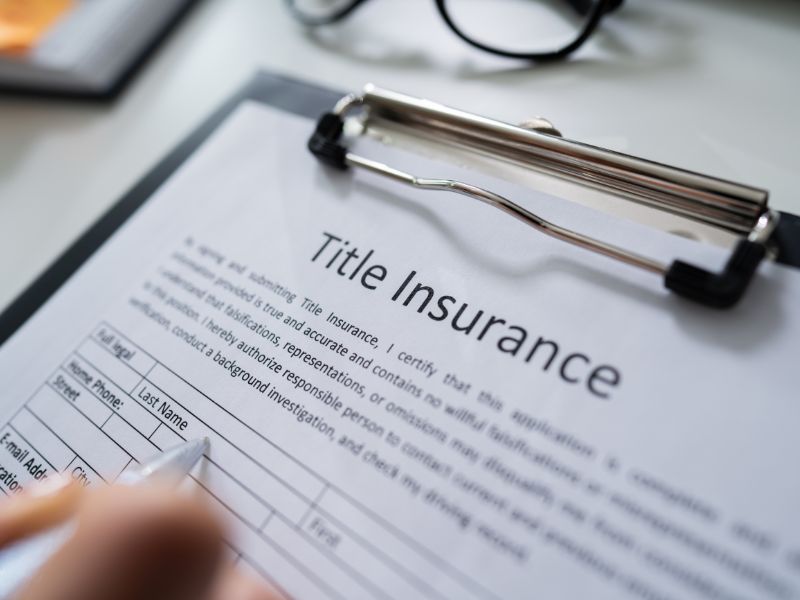 The real estate market is governed by many legalities, and understanding the legal framework is crucial to a smooth transaction. There are three key components of the real estate legal process: contracts, disclosures, and closing procedures.
The real estate market is governed by many legalities, and understanding the legal framework is crucial to a smooth transaction. There are three key components of the real estate legal process: contracts, disclosures, and closing procedures.
Contracts:
At the heart of any real estate transaction is the contract. This legally binding document outlines the terms and conditions agreed upon by the buyer and seller. The contract typically includes:
Property Description: A detailed description of the property, including its address, boundaries, and any additional features.
Purchase Price: The agreed-upon price for the property and the payment structure, including the initial deposit and the final closing amount.
Contingencies: Conditions that must be met for the sale to proceed, such as a satisfactory home inspection, financing approval, or the sale of the buyer’s existing property.
Closing Date: The date when the property officially changes ownership, and the buyer takes possession.
Default and Remedies: The consequences of breaching the contract and the available remedies for both parties.
Understanding the details of the contract is essential, and it is highly recommended to seek legal advice before signing any agreement to ensure all terms are fair and favorable.
Disclosures:
Transparency is a key element in real estate transactions, and disclosures play a crucial role in providing relevant information about the property. Sellers are obligated to disclose any known issues that could affect the property’s value or safety.
Property Condition: Details about the physical condition of the property, including any defects or needed repairs.
Environmental Hazards: Information about potential environmental hazards such as lead-based paint, asbestos, or radon.
Zoning Restrictions: Restrictions on how the property can be used, such as residential or commercial zoning.
Legal Issues: Any ongoing legal issues affecting the property, such as pending lawsuits or property line disputes.
Buyers should thoroughly review all disclosures and gain a comprehensive understanding of the property’s condition and potential risks.
Closing Procedures:
The end result of the real estate transaction is the closing, where the legal transfer of ownership occurs.
Title Search and Insurance: A thorough examination of the property’s title to ensure there are no outstanding liens or ownership disputes. Title insurance is often obtained to protect against any unforeseen issues.
Final Walk-Through: A final inspection of the property to ensure it is in the agreed-upon condition and that any repairs or modifications have been completed.
Closing Documents: The preparation and signing of various legal documents, including the closing statement, mortgage documents, and the deed.
Funds Transfer: The buyer provides the necessary funds, either through a wire transfer or a cashier’s check, to complete the purchase.
Recording the Deed: The final step involves recording the deed with the appropriate government office, and officially transferring ownership from the seller to the buyer.
The real estate legal process involves a complex web of contracts, disclosures, and closing procedures. Navigating the process requires careful attention to detail, professional guidance, and a commitment to transparency. Whether you’re a buyer or a seller, understanding these key components will empower you to make informed decisions and ensure a successful and legally sound real estate transaction.
 Title insurance is a necessary component of real estate transactions, playing a pivotal role in safeguarding the interests of buyers, sellers, and lenders. While it might not be as prominent as other aspects of the real estate process, its significance cannot be overstated. We will examine the essential role of title insurance and explore why it is a vital component of real estate transactions.
Title insurance is a necessary component of real estate transactions, playing a pivotal role in safeguarding the interests of buyers, sellers, and lenders. While it might not be as prominent as other aspects of the real estate process, its significance cannot be overstated. We will examine the essential role of title insurance and explore why it is a vital component of real estate transactions. Welcome to the world of home renovation, where dreams meet reality and your property’s potential is waiting to be unleashed. If you’re contemplating a home renovation project, you’re likely wondering which upgrades will not only enhance your living space but also add significant value to your property. In this blog post, we’ll explore the top home renovations that provide the best return on investment (ROI), helping you make informed decisions and turn your home into a valuable asset.
Welcome to the world of home renovation, where dreams meet reality and your property’s potential is waiting to be unleashed. If you’re contemplating a home renovation project, you’re likely wondering which upgrades will not only enhance your living space but also add significant value to your property. In this blog post, we’ll explore the top home renovations that provide the best return on investment (ROI), helping you make informed decisions and turn your home into a valuable asset. With the first FOMC minutes of the year, it sets the tone of the potential moves the Federal Reserve will make, with them remaining firm in their current stance of not employing any rate cuts, however given the more recent end of year reports, there is a likelihood that rate cuts will start this year. The last change in rates was in July of last year. The second most important report also being the final PMI (Manufacturing) numbers, which has largely met expectations without any irregularities.
With the first FOMC minutes of the year, it sets the tone of the potential moves the Federal Reserve will make, with them remaining firm in their current stance of not employing any rate cuts, however given the more recent end of year reports, there is a likelihood that rate cuts will start this year. The last change in rates was in July of last year. The second most important report also being the final PMI (Manufacturing) numbers, which has largely met expectations without any irregularities. Home flipping – a journey that transforms neglected fixer-uppers into profitable investments. If you’re considering entering the real estate game or looking to enhance your flipping skills, you’ve come to the right place. Let’s explore some tried-and-true strategies that can help you turn those distressed properties into lucrative ventures.
Home flipping – a journey that transforms neglected fixer-uppers into profitable investments. If you’re considering entering the real estate game or looking to enhance your flipping skills, you’ve come to the right place. Let’s explore some tried-and-true strategies that can help you turn those distressed properties into lucrative ventures.
 Environmental consciousness is at the forefront of global conversations, and the real estate industry is undergoing a significant transformation. Homebuyers are increasingly seeking residences that not only provide comfort and style but also align with their commitment to sustainability. The rise of eco-friendly homes marks a shift towards responsible living, where individuals are making choices that benefit both their well-being and the planet.
Environmental consciousness is at the forefront of global conversations, and the real estate industry is undergoing a significant transformation. Homebuyers are increasingly seeking residences that not only provide comfort and style but also align with their commitment to sustainability. The rise of eco-friendly homes marks a shift towards responsible living, where individuals are making choices that benefit both their well-being and the planet. With the New Year, the final week only featured the normal reports of Jobless Claims, S&P Shiller Home Price Index (YoY), and the Chicago Business Barometer. All of them will have limited impact compared to the GDP and the Inflation data reports that have already been released.
With the New Year, the final week only featured the normal reports of Jobless Claims, S&P Shiller Home Price Index (YoY), and the Chicago Business Barometer. All of them will have limited impact compared to the GDP and the Inflation data reports that have already been released. In the rapidly evolving landscape of real estate, smart homes are emerging as a transformative force, reshaping the way we live and interact with our living spaces. Automation and technology have become integral components of modern homes, offering unprecedented levels of convenience, efficiency, and sustainability. This article delves into the burgeoning realm of smart homes, exploring the impact of automation and technology on the real estate industry and the future trends that promise to redefine our concept of home.
In the rapidly evolving landscape of real estate, smart homes are emerging as a transformative force, reshaping the way we live and interact with our living spaces. Automation and technology have become integral components of modern homes, offering unprecedented levels of convenience, efficiency, and sustainability. This article delves into the burgeoning realm of smart homes, exploring the impact of automation and technology on the real estate industry and the future trends that promise to redefine our concept of home. Real estate investing has long been considered a lucrative venture, but the common misconception is that it requires a substantial amount of capital to get started. In reality, numerous strategies allow beginners to dip their toes into the real estate market with minimal funds. We will guide aspiring investors on how to start their real estate journey with little money and build a solid foundation for long-term success.
Real estate investing has long been considered a lucrative venture, but the common misconception is that it requires a substantial amount of capital to get started. In reality, numerous strategies allow beginners to dip their toes into the real estate market with minimal funds. We will guide aspiring investors on how to start their real estate journey with little money and build a solid foundation for long-term success.